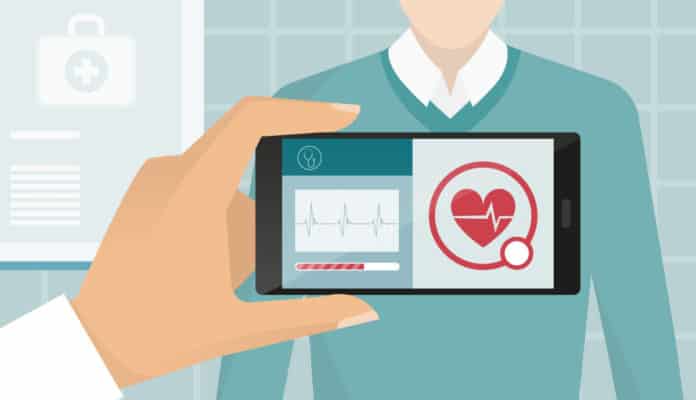New Mobile App To Assist Heart Disease Patients in Remote Areas
A group of Australian and Indian scientists has tested and developed a mobile system which promises to help health workers and doctors in villages to identify, track and manage patients with heart-related disorders and high blood pressure in remote places.
The program is in the form of a clinical decision support system (CDSS), which is loaded on an android phone. The machine also had a module that can send alerts about high-risk individuals who demand follow-up visits to health workers. Further, it reminds patients when to take their medication and when to visit the doctor.
In the study, people from 54 villages in West Godavari district of Andhra Pradesh and aged 40 were screened to identify people. Health workers, ASHAs, were trained to evaluate the risk of coronary disease using tablets loaded with the app and refer those with higher risk to Main Health Centers (PHCs).
The intervention was rolled out in 18 PHCs in a step-wise manner and was assessed by comparing improvements when PHCs were receiving the intervention and if they weren’t. The research found that ASHA employees screened about 86 percent of the populace in the
area and doctors followed up 70% of high-risk referrals. In general, was a marked increase in the two using of blood pressure drugs and blood pressure control.An important take away is that their role cans expand to disease prevention and management beyond maternal and child health. The platform can also link evaluations. A trial was completed recently testing the strategy in a different set of people with PHCs of different degrees of capacity.
The use of these treatments in villages is limited despite the availability of low-cost medicines to control blood pressure in PHCs. Blood pressure levels have been controlled by only a minority. As India has about 140 million people diagnosed with high blood 15, this is alarming.
As reported in India Science Wire Prof David Peiris one of the members from the research team stated that- India’s health system faces great challenges to improve coverage and quality of care for its own citizens. Reduced numbers of health care facilities and care providers, reliance on casual and personal care providers and higher out-of-pocket costs are major barriers that require addressing to effectively identify individuals at high risk for heart disease and refer them appropriately for medical care.
The findings of the study have been published in PLoS One. The research team included David Peiris, Devarsetty Praveen, Kishor Mogulluru, Mohammed Abdul Ameer, Qiang Li, Pallab K. Maulik, Stephen MacMahon, Rohina Joshi, Stephen Jan and Anushka Patel from The George Institute of Global Health; Arvind Raghu and Lionel Tarassenko from University of Oxford; Stephane Heritier from Monash University; Dorairaj Prabhakara from Public Health Foundation of India; and Gari D. Clifford from Emory University.
































